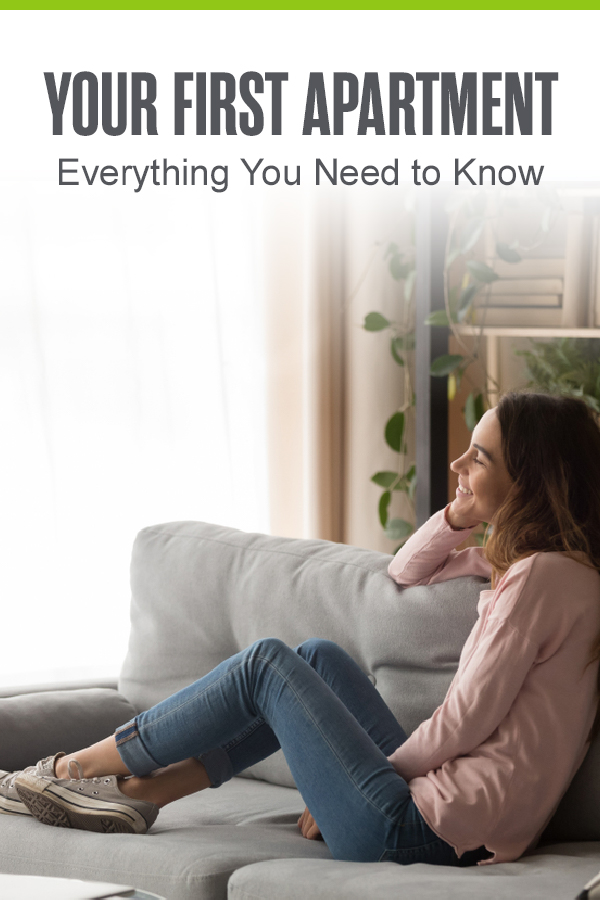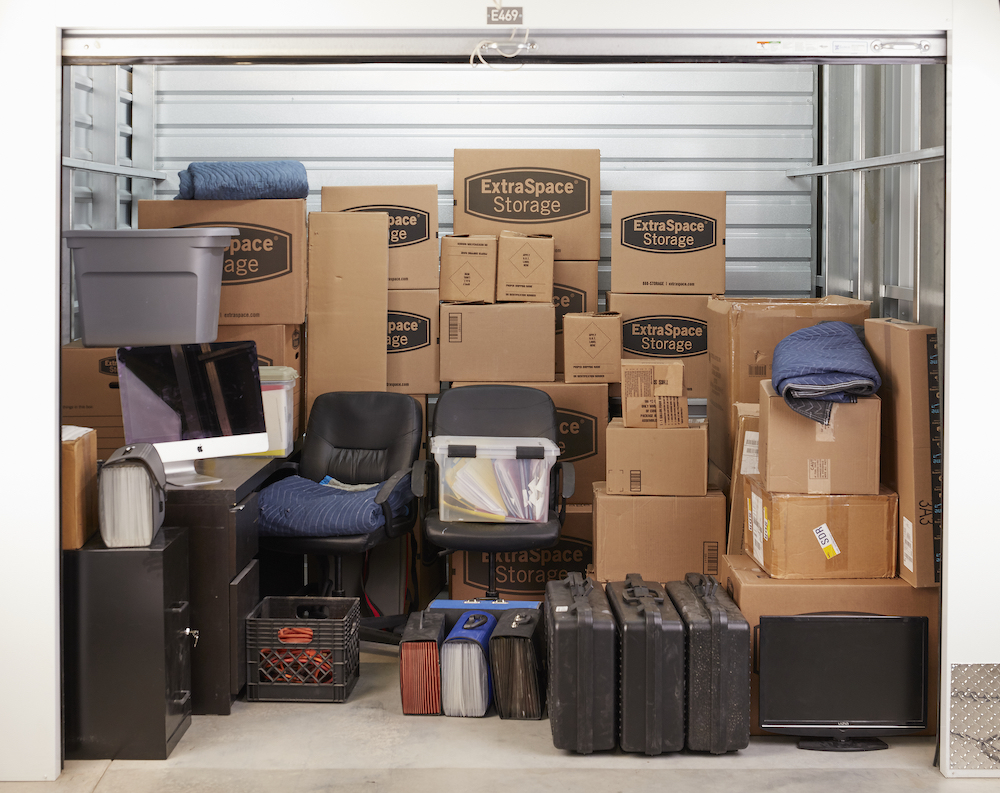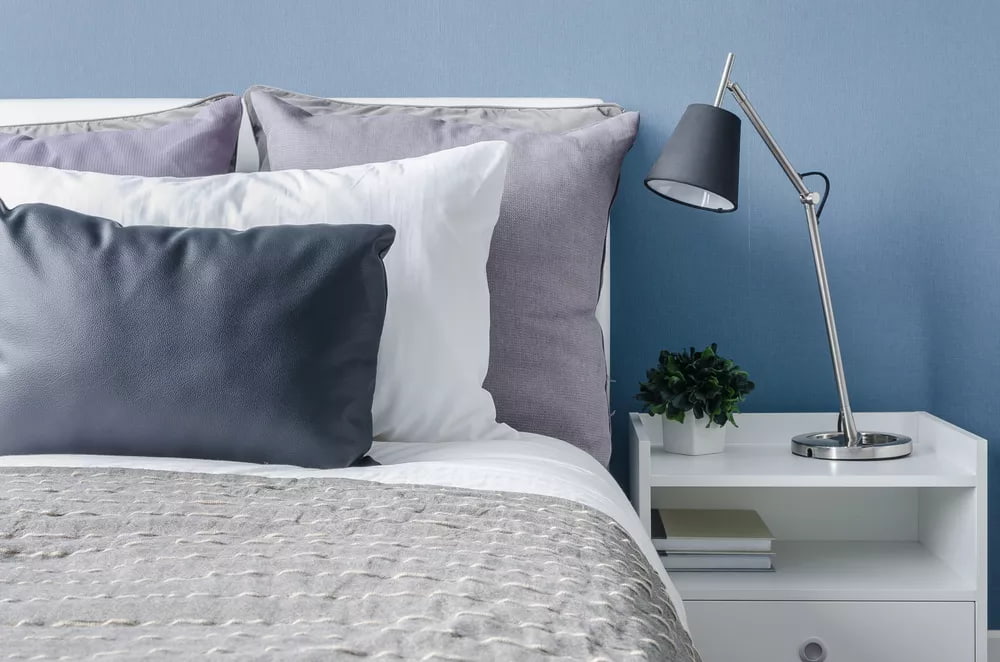Moving into your first apartment? Our guide below shares everything you need to know about how to rent your first apartment, including what to look for in a lease agreement, how to handle apartment hunting, and more!
- Research the Local Market
- Evaluate the Costs
- Keep Your Credit Score in Mind
- Be Wary of Scams
- Create an Apartment Wish List
- Decide If You Want a Roommate
- Tour Apartments You’re Interested In
- Understand the Lease Agreement
- Move into Your New Apartment
Research the Local Market
Real estate trends don’t just affect home buyers—they also impact renters. When looking for a rental home, you should keep your eye on the local market. Research what’s going on in your city’s real estate market by using resources like Apartment List’s National Rent Report. Not only can this make finding your first apartment less stressful, but it can give you a better idea of what factors may affect your search.
Current Rent Prices
Like home prices, rental rates change over time depending on the state of the market. Obviously, it would be ideal to find your first apartment when rent prices are low. But instead of putting off apartment hunting until market conditions change, shop around the current rental rates to find a baseline so that you can better compare your options. This will allow you to determine what’s reasonable to expect within your budget.
Availability
When demand for rental units is high, apartment hunting can turn competitive. Knowing whether this is the case for your local market will give you a good idea of how quickly you need to make decisions. Check websites like RentCafe to see if rent prices have risen dramatically in recent months. If they have, this indicates a low supply and a high demand, which means you’ll need to act quickly to lock down an apartment.
Unit Sizes & Amenities
The size of apartment you’re able to get, as well as the amenities that come with your rental home, will ultimately depend on your budget and what’s common in your local real estate market. While researching rental homes in your area, make note of what apartment sizes are most common, what features they typically include, and what their price ranges are. This will help you temper your expectations before you tour homes.
Landlord-Tenant Laws
While certain landlord-tenant laws apply on a federal level, states also have their own rules and regulations. Be sure to read up about landlord-tenant laws where you live. These laws change often and contain factors like whether or not your landlord needs “just cause” to evict you. First-time and veteran apartment renters alike should be educated on local and federal laws before beginning any apartment search or renting.
Evaluate the Costs
Before you start looking for your first apartment, you’ll need to consider your budget. This means planning for your move-in costs and fees, as well as monthly living expenses like rent and utilities. Understanding exactly what you’re paying for may help these costs feel a little less overwhelming for first-time renters.
Application Fee
Many landlords and property management companies require potential tenants to submit a fee along with their application to offset the costs of the background and credit checks necessary for renting an apartment. The good news is the average application fee is typically around $30.
Administration Fee
Similar to an application fee, an administration fee is something landlords and rental management companies charge alongside your application. This fee varies depending on the price of the apartment and is intended to supplement funds lost while keeping the unit off the market. Since this fee signifies your temporary claim over the apartment before the lease is finalized, some landlords will apply it toward your first month’s rent.
Security Deposit
A security deposit is preemptively charged to cover potential damage to a rental unit. First-time renters can expect this deposit—which is usually submitted when you sign your lease—to be equal to or less than one month’s rent. Though not always the case, it’s possible to get your security deposit refunded when you move out, assuming you take good care of the unit while you live there.
Move-In Fees
Another expense people renting their first apartment should be aware of is move-in fees. This fee is a one-time, non-refundable expense that’s typically between 30-50% of one month’s rent and is meant to cover the cost of getting an apartment ready for occupancy, including appliance repairs, fresh paint, cleaning, and other preparatory maintenance.
Monthly Rent
The cost of monthly rent can vary significantly depending on the size, location, and style of your rental unit. You can find the average monthly rent in your city on websites like ApartmentList or ApartmentGuide. In some cases, your monthly rent may cover certain amenities and utilities, such as community maintenance, water, and trash disposal. Be sure to ask what’s included in the monthly rent when you go apartment hunting, as this could ultimately help you make a decision when choosing between different apartments.
Utilities
Some landlords will roll the average monthly cost of utilities into your rent, while others may ask you to pay for them separately. This can include water, gas, electricity, waste disposal, recycling, cable, internet, and more. Costs will vary based on personal use, where you live, and what size your unit is, among other factors. The average American pays around $240 in utilities each month.
Renters Insurance
Although renters insurance is often required, it’s not typically provided through your landlord. Usually, you’ll need to sign up for a policy as an individual and then provide proof of coverage to your landlord. Renters insurance protects you against water and fire damage, as well as theft and unexpected personal property damage. Each policy will offer slightly different protection, so research available plans while you’re hunting for your first apartment. You can find the average monthly cost of renters insurance in your state here.
Pet Fees
If you’re looking for your first apartment and have a pet moving with you, you’ll have additional costs. For most rental properties, you’ll pay a security pet deposit, a one-time pet fee, and monthly pet rent. Pet deposits are usually refundable, cover all pets in the unit, and cost around $200 to $500. Meanwhile, pet fees are a single, non-refundable expense often between $200 and $500 that’s meant to cover the cost of handling the typical wear and tear of pets in rental units. As for pet rent, this will most likely be an extra $20 to $70 per pet per month.
Keep Your Credit Score in Mind
One of the main ways landlords screen tenants during the application process is by checking their credit scores. Depending on the state of your score, you’ll need to adjust your apartment hunting strategy.
Renting with a Good Credit Score
If you have a good credit score—usually 650 or higher—looking for your first apartment will be much easier. First-time renters in this position will also be glad to know the credit inquiries landlords and property management companies make when you apply for an apartment don’t usually hurt your score.
Renting with a Low or Nonexistent Credit Score
If you have a low credit score or no credit history at all, there are a few simple ways you can increase your chances of having your apartment application accepted. You can put down more money upfront or provide documentation of your recent financial history, such as paychecks or bank statements, to show the landlord or rental company that you’re able to make payments. Another option is to have someone co-sign the lease.
Be Wary of Scams
Unfortunately, rental scams are increasingly prominent these days. First-time renters who lack experience with the process of renting an apartment may be especially susceptible to these scams. Thankfully, being aware of what kinds of scams are out there and how to identify them can help keep you safe.
Signs of a Scam
There are a variety of rental scams out there, most of which revolve around using real listing photos on a fake, duplicate listing. Here are a few common signs of rental scams:
- The price is “too good to be true”
- The landlord refuses to meet in person
- The landlord asks for money before you’ve seen the unit in person
- The landlord asks you to wire money to a third party
- There is no background check
Write an Apartment Wish List
Know what you’re looking for in a rental apartment ahead of time by writing down a wish list. This list should include “must-have” features that you can’t live without, as well as some features that would be nice to have but that you would be okay compromising on.
Location
Is there a certain part of town you’d like to live in? What do you consider an acceptable commute from your new home to your job or school? These questions are important to keep in mind when thinking about the location of your apartment. If you’re searching for an apartment in a city you’re unfamiliar with, use sources like Niche and AreaVibes to research local crime rates, median rental rates, and other livability factors.
Size & Layout
Square footage is something to consider during your search, especially if you have a lot of furniture and possessions that will be coming with you. Is a studio apartment with 600 square feet too small for you? Are you looking for a larger place with multiple bedrooms and bathrooms that you can split with roommates? Remember that the location of an apartment building or complex can also determine what the unit size looks like—typically, the farther outside of a city center you get, the more space you’ll find.
Property Type
Not all rental units are apartments. Although apartment buildings and complexes are a popular choice among first-time renters, some might feel more comfortable renting a condo, duplex, townhouse, or even a room within a single-family property. Defining your preference will help narrow down your search.
Appliances
When looking for your first apartment, another good thing to include on your wish list is appliances. For instance, some apartments will offer in-unit washers and dryers, while others may only have hookups for washers and dryers or a shared laundry room. Take note of your must-haves for appliances!
Amenities
From pools and fitness centers to tennis courts and dog parks, many rental properties offer on-site amenities for residents to enjoy. When exploring apartment listings, write down any amenities you see that sound appealing to you so that you can include them on your wish list for your first apartment.
Decide If You Want a Roommate
Once you’ve decided to start looking for your first apartment you’ll need to decide if you want a roommate. If you’re already used to living with someone, maybe you’d prefer to have the company. Or perhaps you’re looking forward to having a space all to your own. There’s no right choice, but your decision will make a big difference in your first apartment renting experience and in how much you pay in rent each month.
Pros of Having a Roommate
- Split rent, utilities, and other living expenses like groceries
- Divide household chores
- Have company at home
- Additional security
Cons of Having a Roommate
- Possible negligence, such as missed rent or property damage
- Different standards of cleanliness
- Potential personality clashes
- Not as much privacy
How to Find a Roommate
Often, when people share an apartment with a roommate, it’s because they’ve moved in with a friend, family member, or significant other. However, there are many other ways to find roommates when renting your first apartment. Websites like RoomieMatch.com and Roommates.com make it easy to vet your options and get to know potential roommates.
Tour Apartments You’re Interested In
Looking online at photos and listings is a good place to start your apartment search, but touring properties is the only way to test whether a unit is right for you. Touring allows you to see if the unit is clean and in good condition. You can also talk to the landlord or property manager about any questions or concerns you have.
Remember Your Wish List
Turn your wish list into a checklist and bring it along on apartment tours so you can determine how each property matches up to your wants and needs. Make copies of your list and take them on each tour, with the name of each property written at the top, so you can take notes for evaluation later.
Look for Red Flags
On top of looking for positive features, renters looking at getting their first apartment should also keep an eye out for red flags during every apartment tour. Here are just a few red flags to watch for:
- Uneven floor
- Unreliable or suspicious landlord
- Bad odors
- Overly noisy
- Dirty unit
- Visibile pest traps
- Damaged cars in apartment parking
- Damaged locks, doors, and windows
- Excessively low rent
- Mold, mildew, and asbestos
Ask Questions
Not everything can be assessed visually while you’re touring rental properties, which means you’ll need to ask the person giving the tour additional questions. A few good questions to ask include:
- When is rent due?
- What is the pet policy?
- What is the parking policy?
- Is snow removal and lawn care included?
- What fees and deposits should I expect if I apply?
- How long is the lease agreement?
- What utilities are included?
- What is your guest policy?
- Is emergency maintenance available?
- Where are fire extinguishers located?
- Have there been complaints from neighbors about noise?
- Has the unit ever had a pest or mold problem?
- Has the unit ever flooded?
Test Hardware & Appliances
While on an apartment tour, never take for granted that the hardware and appliances will work the way they should. Instead, test faucets, locks, toilets, lights, and any appliances to make sure they function properly. Take notes of anything that doesn’t, and ask the landlord if they’ll be repaired prior to move-in. A single issue may not be a big deal, but if multiple things are in disrepair, this likely indicates a larger problem with the way the property is maintained.
Check Your Cell Signal
While you’re touring a rental apartment unit, don’t forget to pull out your phone and make sure you have good service. The last thing you want is to move into your first apartment and find out that you’re unable to text or make calls from inside your own home.
Keep Parking in Mind
Convenient parking is a major consideration for most people looking to rent their first apartment. On every tour, check whether the unit you’re looking at has outdoor parking or a garage, as well as whether spaces are assigned or first-come, first-serve. It’s also a good idea to ask whether parking is available for guests.
Understand the Lease Agreement
Your lease is a legally binding document containing important information about what’s expected from you as a tenant and about what you can expect from your landlord or rental management company. Don’t gloss over the agreement when renting your first apartment. Make sure you get your own copy after you’ve signed it so you can review it at a later date if necessary. When reviewing your lease, there are two big parts to note.
Length of Lease
Breaking a lease before it’s up can be quite costly—and that’s if your landlord allows you to break the lease at all. You should only agree to a lease that’s for a length of time you can feasibly commit to. Most leases last for a year, so keep that in mind. The consequences for terminating your lease will be outlined in the document when you sign it. Review this information carefully so you know what’s at stake. Usually, the consequence of a broken lease agreement is a substantial fee; however, early termination of your lease can sometimes hurt your credit, depending on how your landlord or property management company reports this information.
Tenant Rights
Your landlord is obligated to meet certain accommodations, all of which should be outlined in your lease agreement. Know what you’re entitled to before move-in day so that you can make reasonable requests when necessary. For example, it’s unlawful for your landlord to withhold your deposit after you move out to improve the unit. If you have kept your apartment in the same condition as when you moved in, and they still try to withhold your security deposit, ask for an itemized list of what they plan to spend it on. Some states require landlords to refund your deposit, assuming you have met the necessary conditions, as soon as 15 days after you’ve moved out. At most, you should receive it within 30 days. Check guidelines from the U.S. Department of Housing and Urban Development to learn more about tenant rights in your state.
WHAT SIZE MOVING TRUCK DO I NEED?
Move into Your New Apartment
Like any moving process, moving into your first apartment will go more smoothly if you start early. This is especially true if you’re moving by yourself. So start planning for your transition as soon as possible!
Set Up Utilities
If utilities aren’t already set up and included in the price of the rent, contact service providers to schedule service for your move-in date about two weeks beforehand. Your landlord may have preferred providers, but you might also do your own research into the most affordable and most reputable local options.
Pack Your Things
As soon as you’re able, start packing belongings you’re going to take with you when you move into your new apartment. Organize boxes by room and make sure they’re clearly labeled to make unpacking much easier.
Buy Furniture Essentials
First-time renters will need to invest in a few first apartment furniture basics like living room seating, a kitchen table and chairs, a desk, and a bed. Remember to consider the amount of space you have in your new apartment as you pick out these items.
Do a Final Walkthrough
The day you move in, walk through the unit and take notes (with photo evidence) of any damage you notice. Be as thorough as possible as you do this because this can be used as proof when you move out that the damage wasn’t your fault, which can increase the likelihood of getting your security deposit refunded. This walkthrough also gives you the opportunity to ask the landlord to address any issues that have arisen since your last visit.
Clean Before Unpacking
Give yourself a clean slate in your new apartment by dusting, sweeping, and wiping down all the surfaces before you get settled. This will make it easier to maintain a tidy environment moving forward after you’re all unpacked in your new apartment.
Get to Know Your Neighbors
It might feel awkward, but introducing yourself to the people in neighboring units can make life in your first apartment feel like home. Knowing who lives around you will not only provide a sense of security, but can also come in handy if you ever need to borrow an ingredient, tool, or other supplies.
***
Need storage space while moving to or living in a small apartment? Extra Space Storage has self storage facilities that can help with your transition. Learn more about using storage while living in an apartment!


